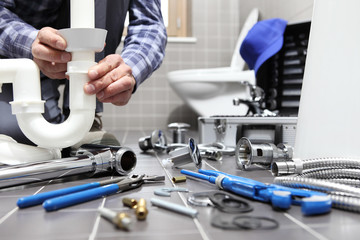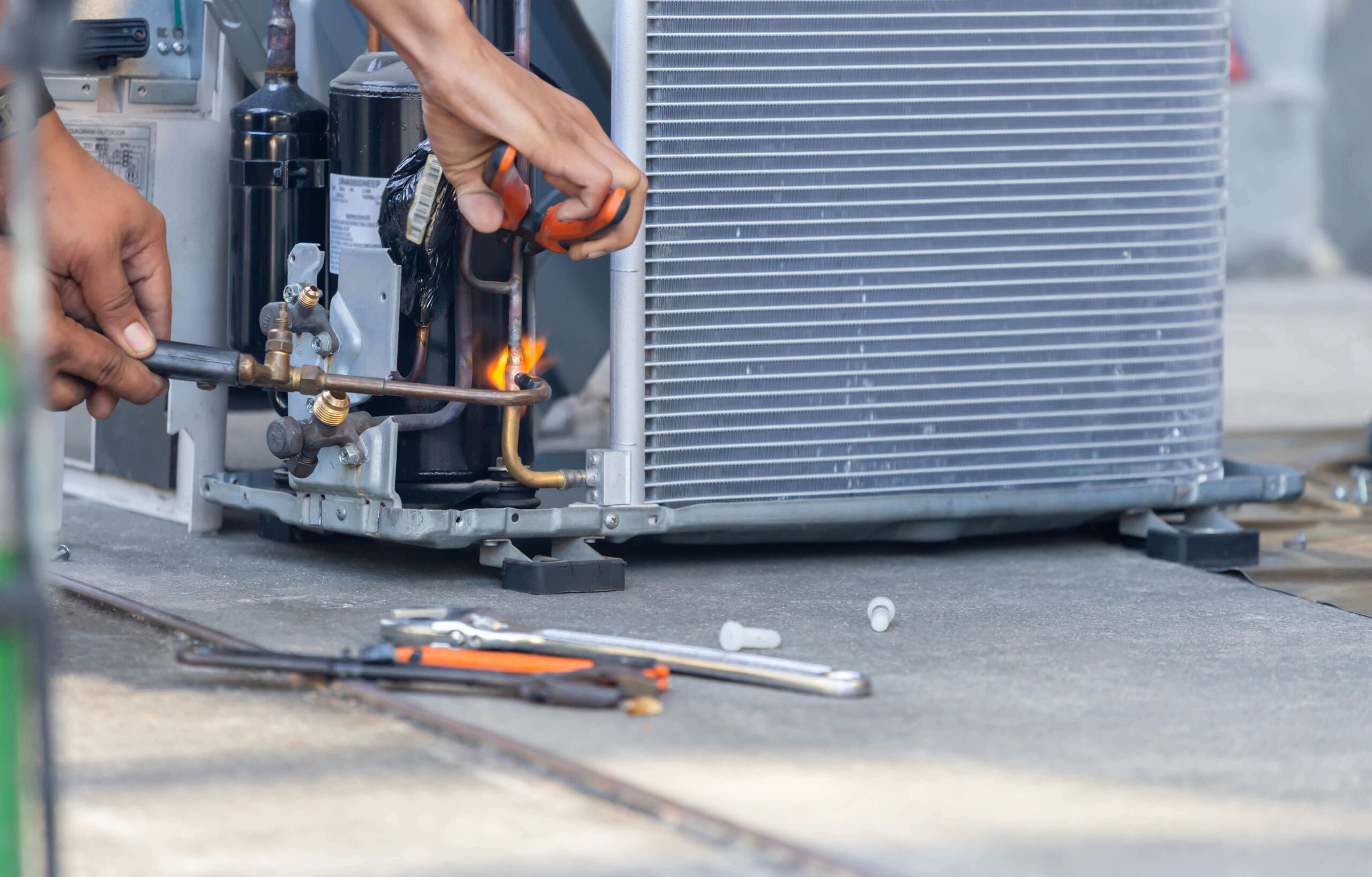
Plumbing is a fundamental part of any building, supplying water for drinking, cleaning, and waste removal while ensuring sanitation and hygiene. Plumbing systems are complex networks that require careful installation, maintenance, and sometimes repair, as even minor issues can lead to significant inconveniences or costly damage. Visit Website to learn more.
Understanding Plumbing Systems
Plumbing systems are designed to handle water supply, drainage, and heating in both residential and commercial structures. The primary purpose of a plumbing system is to bring clean water into a building and safely transport wastewater out of it. Broadly, there are three core types of plumbing systems:
- Potable Water System
This system delivers clean drinking water to all fixtures within a building, including sinks, showers, bathtubs, and water heaters. Pipes, valves, and faucets are carefully installed to ensure an uninterrupted water supply. The potable water system typically connects to a municipal water supply or a private well and is highly regulated to prevent contamination. - Sanitary Drainage System
Wastewater created by sinks, toilets, showers, and other fixtures needs to be removed efficiently and safely. The sanitary drainage system is responsible for carrying wastewater out of a building and into a municipal sewer system or a septic tank. Drainage systems use a network of pipes and venting to prevent the backflow of wastewater and odors, which ensures safe removal from living spaces. - Stormwater Drainage System
This system is designed to manage rainwater, diverting it away from roofs, driveways, and landscapes to prevent flooding and damage. Gutter systems and downspouts collect and redirect rainwater, sometimes using underground pipes to direct water into the ground or nearby water sources, keeping building foundations safe and dry.
Types of Plumbing Pipes
The type of pipe material used in a plumbing system depends on factors like cost, durability, and the specific needs of the system. Here are the most common types of plumbing pipes:
- Copper Pipes
Known for their durability and resistance to corrosion, copper pipes are often used for potable water supply systems. They are highly reliable, capable of withstanding high temperatures, and have a long lifespan. However, copper can be more expensive than other materials, and installation often requires specialized skills. - PVC (Polyvinyl Chloride) Pipes
PVC pipes are lightweight and easy to work with, making them popular for waste and vent lines. They are affordable and resistant to rust and corrosion, but they may not withstand extreme heat, so they are typically not used for hot water lines. - PEX (Cross-linked Polyethylene) Pipes
PEX pipes are flexible, easy to install, and can be used for both hot and cold water lines. PEX is an increasingly popular choice for residential plumbing due to its cost-effectiveness and versatility. It is also resistant to scale buildup and chlorine, giving it a longer lifespan in areas with treated water. - Galvanized Steel Pipes
Galvanized steel was once a common choice for water supply lines due to its strength and durability. However, these pipes are prone to rust over time, leading to water quality issues and reduced water flow. They are now less common, as they have been largely replaced by materials like PEX and copper. - Cast Iron Pipes
Cast iron pipes are known for their strength and are often used in commercial plumbing systems, especially for waste and drainage lines. These pipes are durable but can be heavy and require more effort to install. They are effective at dampening noise, which makes them ideal for buildings with multi-floor drainage systems. - ABS (Acrylonitrile Butadiene Styrene) Pipes
Similar to PVC but stronger, ABS pipes are used in drainage systems. They are particularly good for cold weather installations but can be prone to warping under direct sunlight. They are commonly seen in outdoor and underground applications.
Common Plumbing Services
Plumbers provide a range of services to install, maintain, and repair plumbing systems. Here are some of the most common types of plumbing services:
- Leak Detection and Repair
Leaks are one of the most common plumbing problems, ranging from dripping faucets to burst pipes. Left untreated, leaks can lead to water damage, mold growth, and higher utility bills. Plumbers use various methods to locate leaks, including pressure testing, video inspection, and infrared technology, and provide repairs that prevent further damage. - Drain Cleaning
Over time, drains can become clogged with debris, including hair, food particles, soap scum, and grease. Regular drain cleaning is essential to keep pipes flowing smoothly. Plumbers may use drain snakes, hydro-jetting, or specialized chemicals to remove stubborn clogs and restore proper drainage. - Pipe Replacement
Aging or damaged pipes may need replacement to prevent leaks or contamination. Pipe replacement is common in older buildings where galvanized steel pipes have corroded or lead pipes need replacement. PEX and copper are popular replacement choices for their longevity and resistance to corrosion. - Water Heater Installation and Repair
Water heaters are essential for providing hot water for showers, washing dishes, and cleaning clothes. Plumbers install and maintain water heaters, addressing issues such as inadequate heating, strange noises, leaks, or sediment buildup. Both tankless and traditional tank water heaters require periodic maintenance to ensure optimal performance and efficiency. - Fixture Installation and Repair
From faucets to toilets, showerheads, and garbage disposals, plumbing fixtures wear out over time. Plumbers install new fixtures and make necessary repairs to fix leaks, improve water flow, and enhance the overall efficiency of the plumbing system. - Sewer Line Repair and Replacement
Sewer lines transport wastewater from a building to a sewer system or septic tank. A broken or clogged sewer line can lead to significant issues, including backups and foul odors. Plumbers use techniques such as trenchless pipe repair or traditional excavation to repair or replace damaged sewer lines.
Preventative Maintenance Tips
Regular plumbing maintenance can prevent unexpected issues and extend the life of your plumbing system. Here are some tips to keep your system in good condition:
- Inspect for Leaks Regularly
Check faucets, toilets, and visible pipes for leaks. Even a small leak can lead to significant water wastage over time. Look for damp spots under sinks, unexplained water puddles, or a higher-than-usual water bill as potential indicators of leaks. - Avoid Pouring Grease Down Drains
Cooking oils and grease can solidify in pipes, causing blockages. Instead, pour grease into a container and dispose of it in the trash. - Use Drain Screens
Install drain screens in sinks, showers, and bathtubs to catch hair, food particles, and other debris. Screens are an inexpensive way to prevent clogs and keep drains flowing freely. - Flush Drains Regularly with Hot Water
Pouring hot water down drains every few weeks helps clear away grease, soap scum, and other debris. You can also use baking soda and vinegar to keep drains clean and reduce odors. - Maintain Your Water Heater
Sediment can build up in water heaters, reducing their efficiency and potentially shortening their lifespan. Flush your water heater annually to remove sediment, or schedule professional maintenance. - Replace Old Pipes as Needed
Pipes degrade over time, especially if they are made from materials like galvanized steel or lead. Replace aging pipes with newer materials, such as PEX or copper, to reduce the risk of leaks and water quality issues. - Test Water Pressure
Excessively high water pressure can strain pipes and fixtures, leading to leaks and breakages. Test your water pressure regularly and adjust it if necessary. Installing a pressure regulator can help maintain safe water pressure levels.
The Role of Professional Plumbers
Plumbers are trained professionals who handle the intricate and often complex work of plumbing installation, maintenance, and repair. They are knowledgeable about local plumbing codes and regulations, which ensures that systems are installed safely and function properly. When hiring a plumber, it’s essential to choose a licensed and experienced professional who can provide reliable service and follow all safety standards.
Choosing the Right Plumbing System
Selecting the right plumbing system for your home or business is essential for functionality, durability, and efficiency. For example, in a colder climate, pipes need to be well-insulated to prevent freezing, while buildings in warmer areas might prioritize corrosion-resistant materials. Choosing the appropriate water heater, drain system, and pipe material will contribute to a smooth-functioning plumbing system and minimize the need for frequent repairs.
Plumbing is a foundational element of any building, playing a crucial role in delivering clean water, removing waste, and maintaining overall hygiene. From understanding the types of plumbing systems and pipe materials to knowing the common services and maintenance tips, you can take steps to ensure your plumbing system remains in top condition. Regular inspections, preventive measures, and prompt repairs can prevent small issues from becoming major problems, ultimately saving time, money, and stress. Professional plumbers bring invaluable expertise to every job, ensuring safe, compliant, and efficient plumbing systems that stand the test of time.


